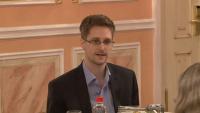-
U.K. to destroy biometric information of 45 terror suspects due to botched paperwork
British security agencies will have to destroy fingerprints and DNA of forty-five terror suspects because the police retained the biometric samples longer than the law allows. The law does allow the police to keep biometric information of terrorism suspects indefinitely, but certain paperwork must be completed within a certain period of time to allow that, and if the paperwork is not completed, the samples must be destroyed. A new report reveals that Britain holds biometric information and materials on nearly 8,000 suspects.
-
-
Modern buildings have an alarming flaw when people need to escape quickly
The landscapes in which many of us live would have been unimaginable to previous generations. We now have skyscrapers so striking and tall they would make Icarus turn pale. Yet in emergency situations, our seemingly brilliant designs sometimes turn against us – and become death traps when disaster strikes. There is a major problem with the way we evaluate the safety of the structures in which we live and work. Until we address it, our chances of survival are a little like those of the characters from Greek legend – in the lap of the gods.
-
-
Snowden dismisses FBI's claim it cannot unlock San Bernardino killers’ iPhone

Edward Snowden has joined the debate over the FBI’s attempt to force Apple to help it unlock the iPhone 5C used by one of the San Bernardino terrorists. The FBI says that only Apple can deactivate certain passcode protections on the iPhone — for example, the 10-attempt limit, which makes the phone permanently inaccessible after ten attempts to guess the password —which would allow law enforcement to guess the passcode by using brute-force.
-
-
Pastor leading prayers at a Trump rally says Sandy Hook school massacre was a hoax
Carl Gallups an evangelical pastor who led prayers at a Donald Trump campaign rally, has been a Sandy Hook “truther,” claiming that the school massacre never happened and that the parents of the child victims were “Hollywood actors” hired by the Obama administration to help promote gun safety laws.
-
-
New laser-based aircraft tracking system to aid in disaster relief efforts
A ground-breaking tracking system called HYPERION, based on eye-safe lasers, could enable aircraft, unmanned aerial vehicles (UAVs), and even orbiting satellites to transmit vital data to ground stations more securely, quickly and efficiently. HYPERION, offering major benefits compared with the traditional radio frequency (RF) data transmission systems currently relied on in the UAV sector, could allow UAVs engaged in disaster monitoring, surveying, search and rescue, and other humanitarian missions to send detailed images more rapidly back to the ground for analysis.
-
-
DARPA announces VTOL X-Plane Phase 2 design
For decades, aircraft designers seeking to improve vertical takeoff and landing (VTOL) capabilities have endured a substantial set of interrelated challenges. Dozens of attempts have been made to increase top speed without sacrificing range, efficiency or the ability to do useful work, with each effort struggling or failing in one way or another. DARPA says that its VTOL Experimental Plane (VTOL X-Plane) program aims to overcome these challenges through innovative cross-pollination between fixed-wing and rotary-wing technologies.
-
-
Senior defense officials discuss arctic, Antarctic science and research
To address the need for collaborative research in the Polar Regions, Chief of Naval Research Rear Adm. Mat Winter met in Finland two weeks ago with counterparts from five nations in a first-ever gathering of senior defense officials to coordinate science and technology research in high latitudes. While the U.S. Navy has long experience with polar operations, changing climates present new challenges — particularly for surface ships, as new water passages open up.
-
-
Apple versus FBI: All Writs Act’s age should not bar its use
A federal magistrate judge in California has issued a warrant ordering Apple to assist the FBI in accessing data on an iPhone used by a suspect in the December 2015 San Bernardino mass shooting. Apple’s public refusal to comply with the order – and its motion asking a judge to reverse the order – have set up a legal showdown that has captivated the technology world. It’s hard not to think that marketing and economics are at least somewhat behind Apple’s actions. But my guess is most people understand that the FBI would not be getting into their phones without a probable cause search warrant. In addition, I would think Apple would not want to have a market composed of people who want to use iPhones for dangerous and illegal activity. The company might actually lose more future customers because of its uncooperative attitude than it would ever lose by helping the government by complying with a court order.
-
-
Applications solicited for funding of next-gen first-response technologies
DHS Science and Technology Directorate (S&T) says that applications are now being accepted through 9 March 2016 for the NextGen First Responder Technologies solicitation, an opportunity for joint-funding by DHS S&T and their partners in the Israeli Ministry of Public Security.
-
-
All of Indonesia’s Tsunami early warning buoys were inoperable before 7.8 magnitude tremor
At the time of the 7.8-magnitude earthquake which struck off the Indonesian coast on Wednesday night, all of Indonesia’s tsunami early warning buoys were inoperable. The shallow tremor 600 km off Sumatra island did not generate a tsunami, but the incident has raised questions about the effectiveness of the early warning system, which was deployed in the wake of the devastating 2004 tsunami.
-
-
All of Indonesia’s Tsunami early warning buoys were inoperable before 7.8 magnitude tremor

At the time of the 7.8-magnitude earthquake which struck off the Indonesian coast on Wednesday night, all of Indonesia’s tsunami early warning buoys were inoperable. The shallow tremor 600 km off Sumatra island did not generate a tsunami, but the incident has raised questions about the effectiveness of the early warning system, which was deployed in the wake of the devastating 2004 tsunami.
-
-
DHS, DoE, U.S. Army test operational effectiveness of technology solutions
Understanding the true potential of a new technology comes with the opportunity to deploy it in a real life, urban environment scenario against adaptive adversaries. Recently, the Department of Homeland Security (DHS) Science and Technology Directorate (S&T) collaborated with the U.S. Army to assess the operational effectiveness of twenty-five technologies through practical application.
-
-
In emergencies, don’t trust a robot too much

In emergencies, people may trust robots too much for their own safety, a new study suggests. In a mock building fire, test subjects followed instructions from an “Emergency Guide Robot” even after the machine had proven itself unreliable — and after some participants were told that robot had broken down.
-
-
Forensic botany uses plant DNA to trace crimes

Researchers are advancing the field of forensic botany with the publication of two recent studies that use marijuana DNA to link drug supplies and pollen DNA to aid in forensic investigations.
-
-
In FBI versus Apple, government strengthened tech’s hand on privacy
The ongoing fight between Apple and the FBI over breaking into the iPhone maker’s encryption system to access a person’s data is becoming an increasingly challenging legal issue. This case is very specific, and in this narrow case, Apple and law enforcement agencies will likely find a compromise. However, this question is not going away anywhere. With the “Internet of things” touted as the next big revolution, more and more devices will capture our very personal data – including our conversations. This case could be a precedent-setting event that can reshape how our data are stored and managed in the future.
-
More headlines
The long view
Factories First: Winning the Drone War Before It Starts
Wars are won by factories before they are won on the battlefield,Martin C. Feldmann writes, noting that the United States lacks the manufacturing depth for the coming drone age. Rectifying this situation “will take far more than procurement tweaks,” Feldmann writes. “It demands a national-level, wartime-scale industrial mobilization.”
How Male Grievance Fuels Radicalization and Extremist Violence
Social extremism is evolving in reach and form. While traditional racial supremacy ideologies remain, contemporary movements are now often fueled by something more personal and emotionally resonant: male grievance.
The Surprising Reasons Floods and Other Disasters Are Deadlier at Night
It’s not just that it’s dark and people are asleep. Urban sprawl, confirmation bias, and other factors can play a role.
Why Flash Flood Warnings Will Continue to Go Unheeded
Experts say local education and community support are key to conveying risk.
